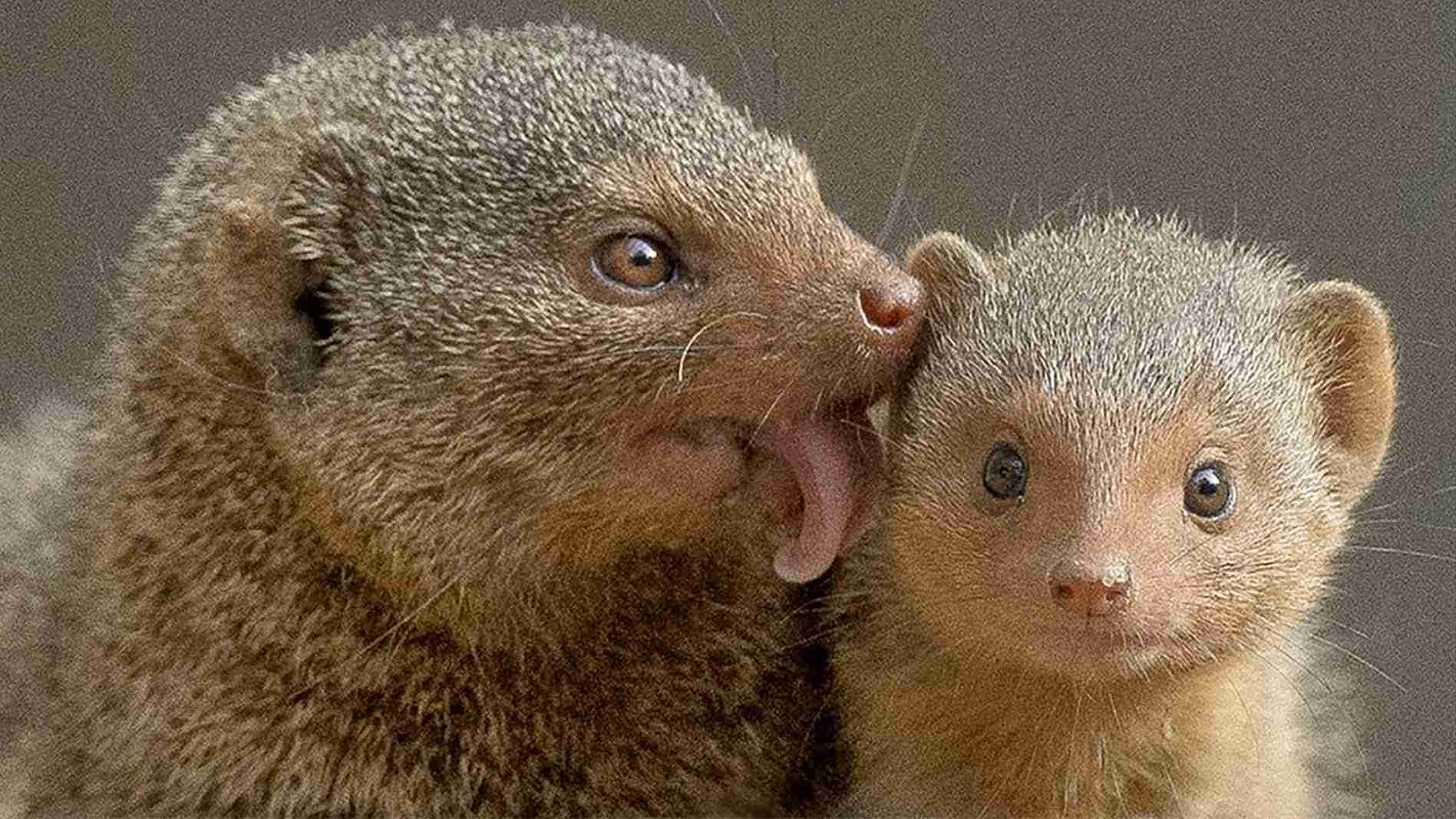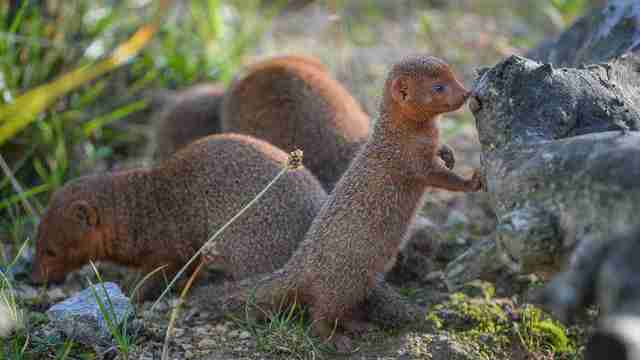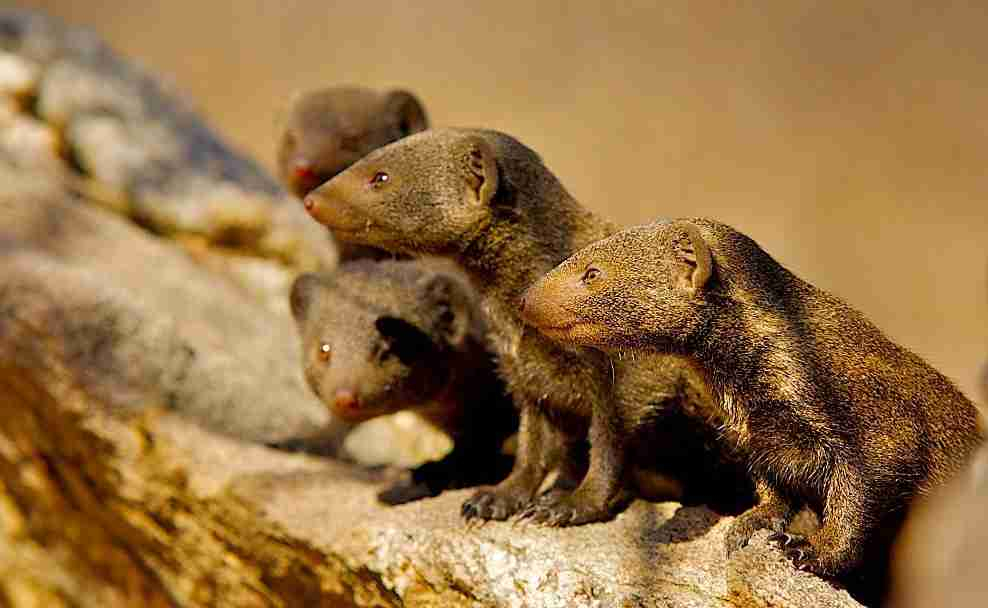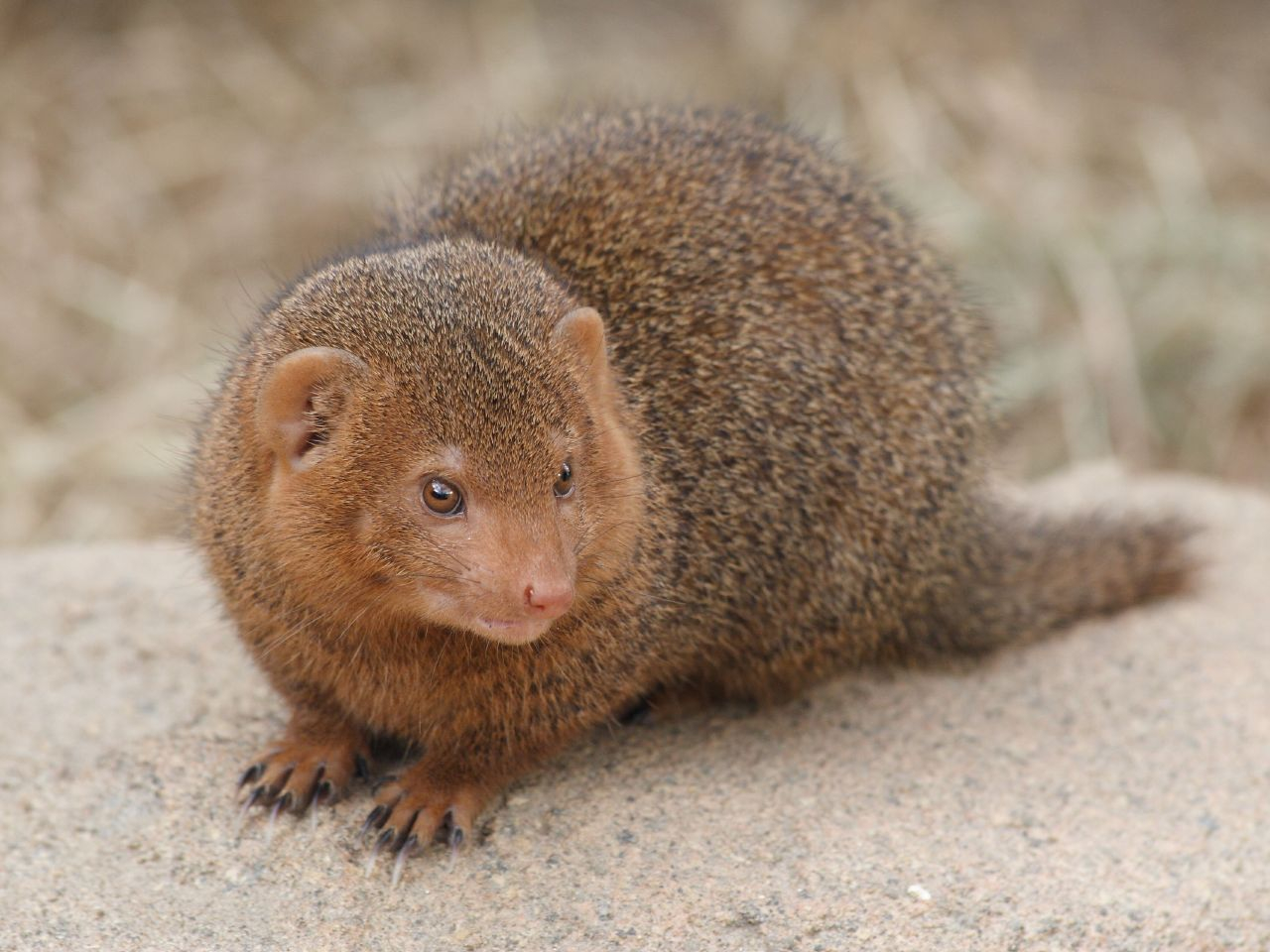
Animal
22:53, 29-May-2018
Dwarf mongooses could reward friends later: study
CGTN

British scientists found that dwarf mongooses, Africa's smallest meat-eaters, could remember previous cooperative acts by their group mates and reward them later.
A study, published on Monday in the journal Proceedings of the National Academy of Sciences, provided the experimental evidence in a wild non-primate population for delayed contingent cooperation: providing a later reward to an individual for the amount of cooperation it has performed.
It also offered convincing evidence of cross-commodity trading, whereby individuals reward one type of cooperative behavior with a different cooperative act, as dwarf mongooses traded grooming for sentinel behavior, which involves an individual adopting a raised position to look out for danger and warning foraging group mates with alarm calls.

A dwarf mongoose (R) in a raised position to look out for danger while its mates are foraging /Photo courtesy of DFIC
A dwarf mongoose (R) in a raised position to look out for danger while its mates are foraging /Photo courtesy of DFIC
It is common that people trade goods and can track the amount they owe others using memories of past exchanges.
Some nonhuman animals are also known to be capable of trading cooperative acts immediately for one another, but the possibility that there can be delayed rewards is always debatable, according to the paper’s senior author, Andy Radford from Bristol University's School of Biological Sciences.
Over three-hour periods when mongoose groups were foraging, the researchers simulated extra sentinel behavior by a subordinate group member using playbacks of its surveillance calls: vocalizations given to announce it is performing this duty.
At the sleeping burrow that evening, they monitored all grooming events, especially those received by the individual who had had their sentinel contribution up-regulated.

A group of dwarf mongooses /Photo courtesy of wildlife photographer Shannon Wild
A group of dwarf mongooses /Photo courtesy of wildlife photographer Shannon Wild
The researchers found that on days when an individual was perceived to conduct more sentinel duty, it received more evening grooming from group mates than on control.
Grooming has long been considered an important tradable commodity in social species, being used as a reward in various contexts.
The new work showed that this grooming reward did not need to occur immediately after the relevant cooperative act, since the increased grooming by mongooses took place at the end of the day when the mongooses had finished foraging and returned to their sleeping burrow.

A dwarf mongoose in Korkeasaari Zoo, Helsinki, Finland /Photo courtesy of Korkeasaari Zoo
A dwarf mongoose in Korkeasaari Zoo, Helsinki, Finland /Photo courtesy of Korkeasaari Zoo
Dwarf mongooses are Africa's smallest carnivore, living in cooperatively breeding groups of five to 30 individuals.
(Cover: Xinhua Photo)
Source(s): Xinhua News Agency

SITEMAP
Copyright © 2018 CGTN. Beijing ICP prepared NO.16065310-3
Copyright © 2018 CGTN. Beijing ICP prepared NO.16065310-3